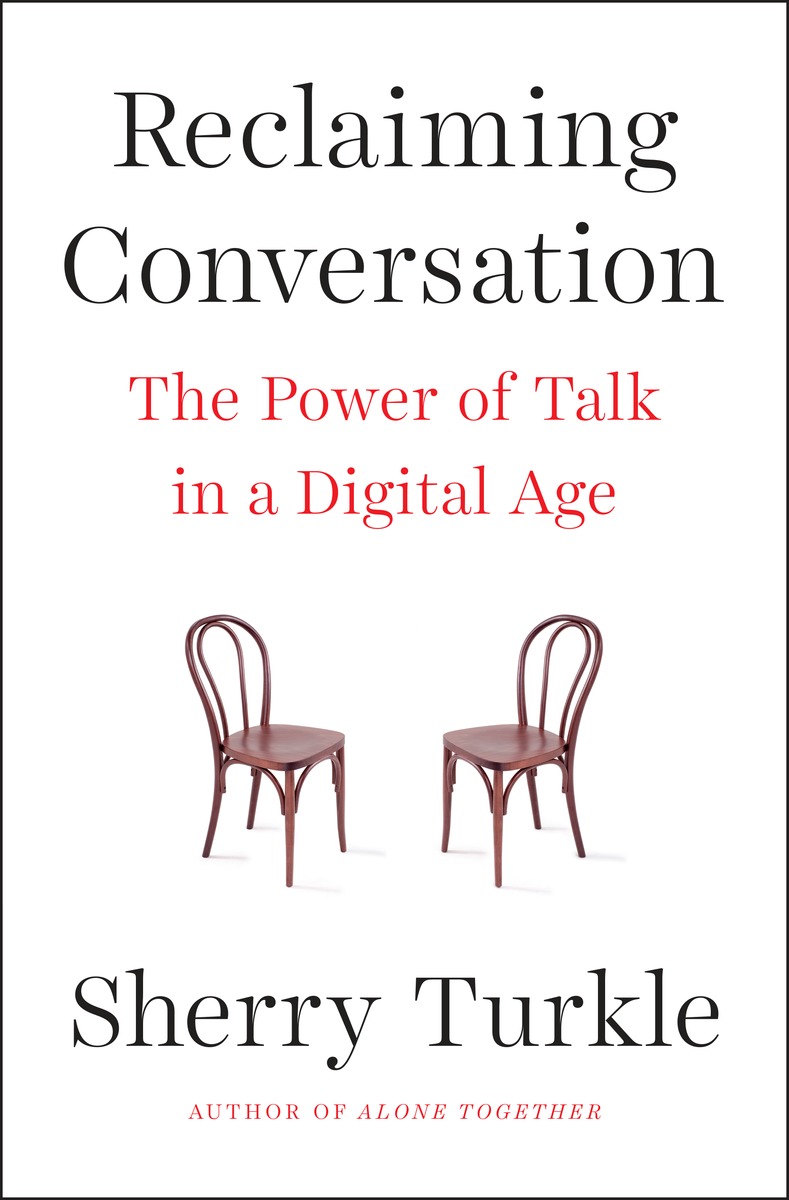Sherry Turkle, Ph.D.
Abby Rockefeller Mauzé Professor of the Social Studies of Science and Technology, MIT Founder and Director, MIT Initiative on Technology and Self Author,
Reclaiming Conversation: The Power Of Talk In A Digital Age
In discussing her brand-new book Reclaiming Conversation: The Power of Talk In A Digital Age, Sherry Turkle, Ph.D. notes that she removes her iPhone from the room when doing interviews because “research shows that the very sight of the iPhone anywhere in your line of visions actually changes the conversation.” Likely this gives you pause as you think about the last time you didn’t have your mobile phone present during your waking (or sleeping) hours. The benefits of technology are numerous and a settled point – for example, you may be reading this text electronically. Yet the pervasiveness of communication technology also has its consequences – the always-on, always connected society is becoming less empathic, less compassionate, less focused, less intimate.
In Reclaiming Conversation, Turkle explores how our dependence on technology has led to a “flight from conversation.” Real conversations lay the groundwork for creative collaborations, empathy, intimacy, social action, education, and business. Using a “3 chairs” metaphor borrowed from Henry David Thoreau’s Walden – “I had three chairs in my house; one for solitude, two for friendship, three for society.” – Turkle frames her case for conversation by looking at what has been lost in the pursuit of continual connection. She also adds a fourth chair – our relationship with the artificial and virtual, with companion robots, “caring machines,” simulacra of sociability.
In her book’s final chapter, Turkle sums up a core issue: “In our new culture of connection, we are lonely but afraid of intimacy.” We settle for the “illusion of companionship without the demands of friendship.”
Upcoming Events
Year of the Monkey: An Evening with Patti Smith
Patti Smith
Writer, performer, and visual artist
Evanston Township High School Auditorium
Live streaming video of this event will be available, beginning at 7:00 PM, on the ETHS Wildkits YouTube Live Stream channel.
Special thanks to DJ Jeff Pazen for pre- and post-event music!

The Power of Human: How Our Shared Humanity Can Help Us Create a Better World
Adam Waytz, Ph.D.
Associate Professor of Management and Organizations at Northwestern University’s Kellogg School of Management.
North Shore Country Day School Auditorium
The Great Juggling Act: Balancing Life as a Parent
Julie Morgenstern
Time-management and productivity specialist, and author of Organizing from the Inside Out, Never Check Email in the Morning, SHED Your Stuff, Change Your Life, and the brand-new Time to Parent: Organizing Your Life to Bring Out the Best in Your Child and You
New Trier High School, Northfield Campus, Cornog Auditorium



